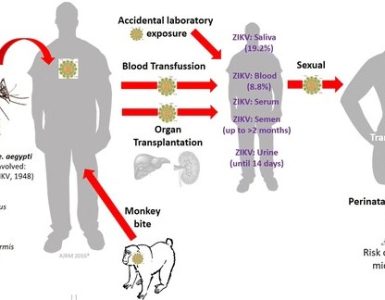
A potential new protocol to protect pregnant women who are at risk for hepatitis B – a health problem that affects two billion people worldwide – has been identified by UT Southwestern Medical Center specialists.
An accelerated hepatitis B vaccination schedule for high-risk pregnant women was found effective and well-tolerated. While the normal three-shot regimen of hepatitis B vaccine for adults – given over a six-month period – has long been recommended for pregnant women, that schedule often proved unmanageable in the course of a pregnancy.
“It’s difficult to get all three doses in pregnancy, and people tend to get lost to follow-up, especially high-risk populations,” said Dr. Jeanne Sheffield, associate professor of obstetrics and gynecology at UT Southwestern and lead author of the study.
The research team stepped up the process for pregnant women and used the normal three-shot dosage given to adults over a 12-week period. That regimen is the shortest recommended schedule in non pregnant adults that still offers protective long-term immunity.
“Now that we’ve shown it’s efficacious in pregnancy, people are interested,” said Dr. Sheffield, who also heads UT Southwestern’s maternal-fetal medicine fellowship program. “We’ve already received a number of requests for our specific protocol from physicians who see high-risk patients and are interested in starting a vaccination program.”
Dr. Sheffield said, however, that health care providers seldom offer the hepatitis B vaccine series to reproductive-aged women because of lack of physician and patient education, patients’ fear of vaccination and its purported side effects, and the overall reluctance to vaccinate pregnant women.
Even though the US Centers for Disease Control and Prevention reports pregnancy is not a contraindication to hepatitis B vaccine, limited data were available on its use in pregnancy.
In the current study, researchers enrolled high-risk women with a current diagnosis of a sexually transmitted disease, injection drug use or both, over a six-year period. Of 200 women enrolled, 168 received all three doses of the vaccine. Researchers found that race, maternal age, tobacco and alcohol use, and gestational age at first vaccination did not affect seroconversion rates – the development of antibodies against hepatitis B – using the accelerated schedule. Obesity had a negative influence, however.
The accelerated schedule in pregnancy had seroconversion rates (90 percent) that were comparable to the standard schedule in healthy adults. The study also showed no increase in preterm delivery rates or neonatal intensive care admissions.
“The vaccine was well-tolerated in our pregnant women, and no serious adverse events were reported,” Dr. Sheffield said. “Initial concerns about the ability of a pregnant woman to mount an effective immune response to a vaccine are largely unfounded. It’s doable.”

















